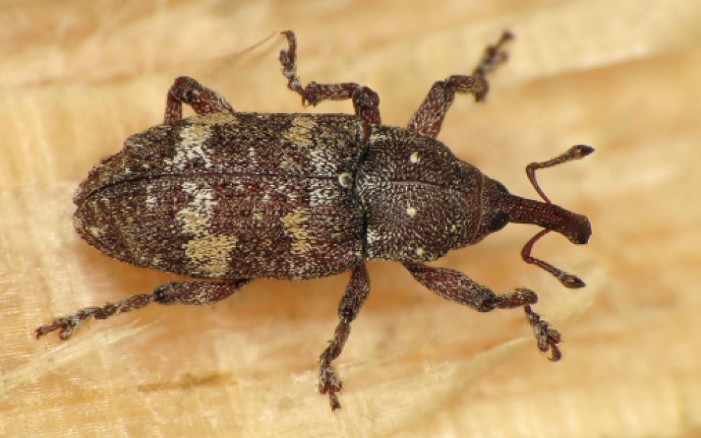The Agricultural and Livestock Service (SAG) of the Biobío region established a quarantine zone after detecting the presence of the pine bark weevil in forestry plantations in Los Ángeles. This is a quarantine pest that causes severe damage to wood and was identified after 12 years of progressive spread from the southernmost part of the country.
The regional director of SAG, Roberto Ferrada, explained that the species Pissodes castaneus "is an insect that, due to its habits, has the ability to kill healthy and vigorous trees." In the Biobío region, trees previously attacked by the wood-boring wasp—a pest under control—have been weakened, making them more susceptible to infestation by this weevil.
TWELVE YEARS OF MONITORING
Ferrada emphasized that SAG's work is part of "a national detection plan that has been in place for 12 years." The pest entered through Futaleufú via natural flight from Argentina and has advanced "slowly northward." After 12 years, it reached the Biobío region, where it was detected in "a sector of radiata pine plantations in Los Ángeles, through routine phytosanitary surveillance activities."
Once laboratory analysis scientifically confirmed the species, an official resolution was published, establishing restrictions and specific technical actions. "We continue monitoring the region and sampling. We have a strategy involving traps and direct surveillance of suspicious trees," stated the regional director.
PROTOCOLS AND EXPORTS
Despite the detection, forestry exports from the region will not face new trade restrictions. "Since the pest is already present in the country and SAG has officially reported it to the International Plant Protection Convention, there are currently no additional regulations on the international trade of wood exports," clarified Ferrada.
The director noted that Biobío "is an export wood-producing area and also home to the forestry industry and the ports where shipments are made."
Pine forest owners within the regulated area must comply with specific protocols when harvesting and transporting wood to sawmills or industrial plants in pest-free areas. These mandates include "debarking the wood and other technical protocols to contain the spread and provide sufficient time for the second strategy: the release of biological control agents."
Roberto Ferrada reported that SAG held discussions with the regional branch of the Chilean Wood Corporation (Corma) and representatives from major and smaller forestry companies to clarify regulations and requirements.
"The pest is not new to them; they know what must be done, and we are taking advantage of improvement opportunities so that wood movement from regulated to pest-free areas remains efficient," he explained.
Source:La Tribuna







Comments (0)
No comments yet. Be the first to comment!
Leave a comment